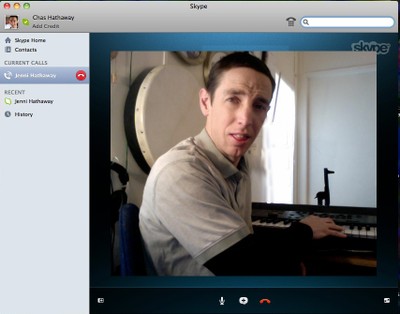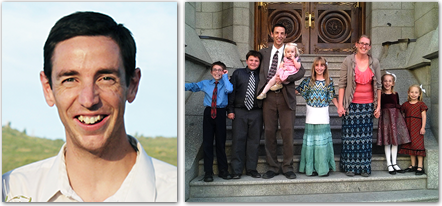|
 |
 | |||||||||||||
Live Online Piano Lessons with Chas Hathaway You or Your Child Can Finally Do Piano Lessons! Chas Hathaway offers personalized piano ear training lessons with an emphasis on learning to write your own music. Each lesson is customized to the needs and goals of the student. To set up piano lessons with Chas, email chas@willowrise.com. Before signing up for lessons, I highly recommend you obtain a copy of Chas's book, Play by Ear, Write by Heart, since it contains the very material he'll be covering in the lessons. Read and try the exercises discussed in the book, and if then consider lessons if you'd like further coaching on the those methods. Available in soft-bound and ebook formats (epub, kindle, pdf, etc).
And now, location is no longer a factor. Lessons take place online, using online tools such as Skype, Google plus, and/or Facebook. Unlike most other online courses, these lessons take place live, rather than through pre-recorded videos. And while Chas may send you links and downloads to audio, video, and text, the main lessons will all take place live, so there will still be that direct student/teacher connection to ensure that the individual needs of the student are met. The regularity and schedule for lessons are based on the availability and schedule of the student. What Kinds of Things Will Be Learned? Depending on the abilities and experience of the student, early lessons will focus a great deal on ear-training: the ability to hear a note, and find it on the piano, then to hear a chord or set of notes, and play it on the piano, and finally, to be able to hear a full piece of music and be able to play it on the piano. Students will learn to hear the music around them, recognize the chord progressions, identify them, and recreate them. There will also be major focus on creating original music in the student's own, unique style. Lessons may include:
Crash Course If you don't want to do regular recurring lessons, you can do the crash course instead. That's where Chas will do a single two hour crash course where he will cram all he can into a single lesson. In the crash course, instead of doing a lot of hands-on learning, Chas will help students learn what they can do to teach themselves to play piano by ear and write their own original music.
Is this Suzuki Method? No. This is a uniquely designed learning method that focuses much less on music reading, and much more on writing and music creation. Will I learn to have perfect pitch? No. Perfect pitch is the ability to recognize the exact note without any reference point. What you will learn in these lessons is to have strong relative pitch, so that you can pick out a tune or entire musical piece regardless of the key it was heard in. For example, you might hear a piano piece on the radio at the grocery store, and then come home and play it. You might not remember the exact notes of the tune, but you will be able to recognize the exact spaces and rhythm of the music, so that you can come home and play it exactly right--in whatever key is most comfortable for you to play in. Will I be expected to memorize notes and terms? You won't be quized or tested to memorize or master terminologies. That said, terms, note values, and rhythms will be taught by repetition and practice in order to give you tools that will help you quantify what you're doing. As an example, you will learn to recognize (by ear) the chord progression 1, 5, 6, 3, 4, 1, 4, 5. In the key of D, this would be chords D Major, A Major, B minor, etc. You won't be expected to "memorize" those chord names, but when you're at the grocery store, and hear the tune Canon in D playing, you'll recognize the chords by sound, and if you've become comfortable with the terms, you'll have names to give each chord so that you can jot down a note that says, "1, 5, 6, 3, 4, 1, 4, 5" so that when you come home, even if you've forgotten the music you heard, your note will tell you what to play. That may be confusing if you don't know what I'm talking about. Don't worry, you're not expected to understand, but the point is, terms and note names will be taught as the student is ready, and students will not be tested or formally quizzed on what they remember. Does Chas teach any other instruments? Because the classes are uniquely fitted to the individual, students are welcome to use other instruments in the learning process, such as flutes, drums, etc. It should be noted, however, that though Chas is comfortable working with students on various instruments, he is not skilled enough at most other instruments to offer a thorough course in the mastery of those unique instrument techniques. Additional instruments are welcome and invited to be used in the creation of music and the training of the ear. Feel free to contact Chas about individual questions in this regard. Rates and Cost of Lessons Because the lessons are personalized, the rates can also be personalized based on the time, regularity, and financial abilities of individual students. But as a general rule, the basic rates are as follows:
To set up piano lessons with Chas, email chas@willowrise.com. |








 Lessons Take Place Live Online
Lessons Take Place Live Online





